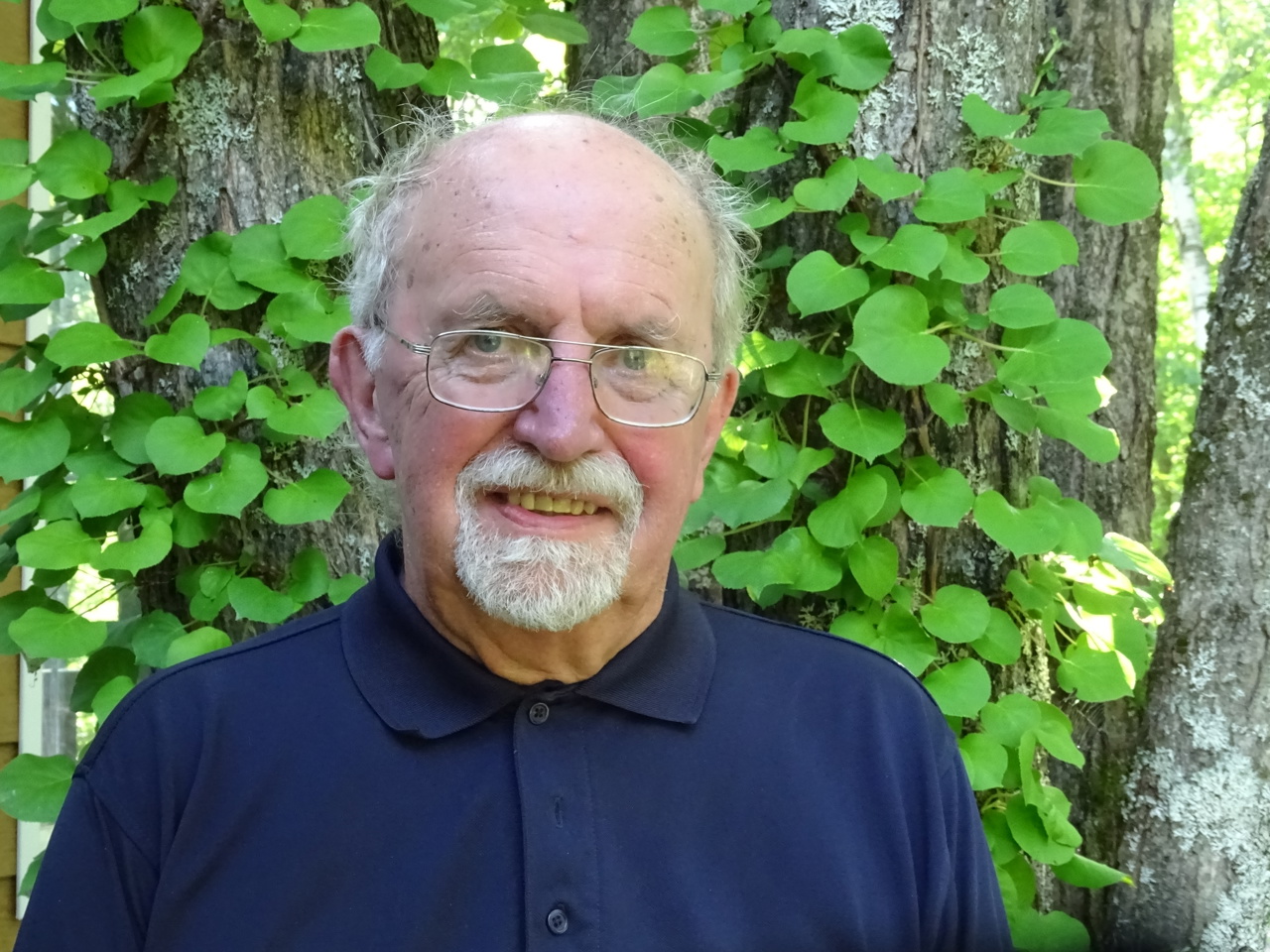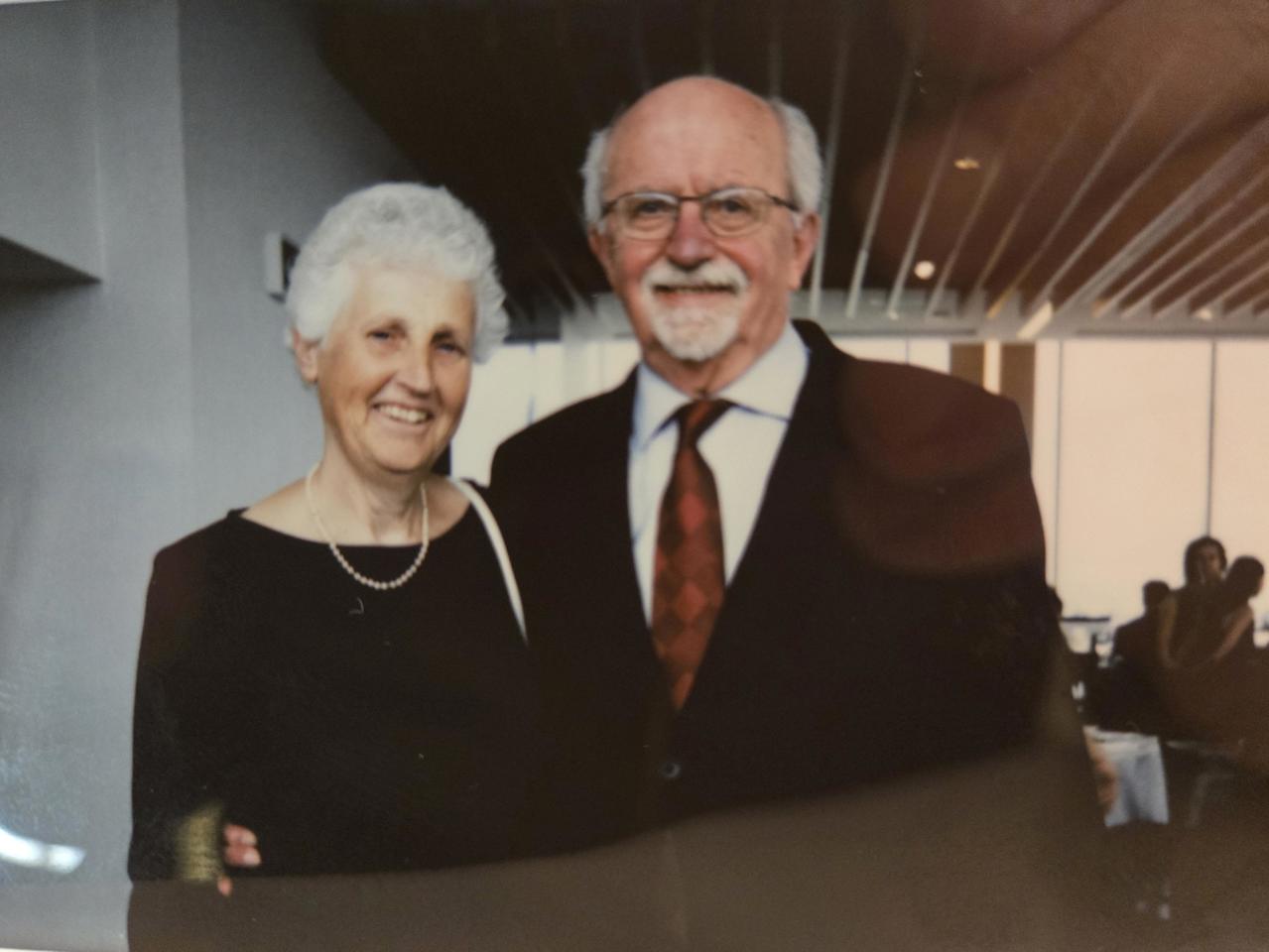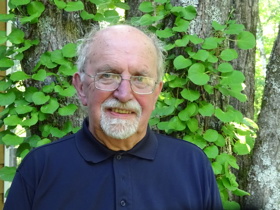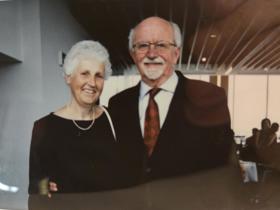Born in Edmonton, Andrew Brook studied at the University of Alberta before going to Oxford to read for a DPhil in philosophy. He returned to Canada and took up a post at Carleton University where he is now Chancellor’s Professor Emeritus of Philosophy and Cognitive Science. Brook is the former director of Carleton University’s Institute of Cognitive Sciences and his published works include Kant and the Mind, The Prehistory of Cognitive Science and Knowledge and Mind (with Robert Stainton). He also trained as a psychoanalyst, and is the only person to have been President of both the Canadian Philosophical and the Canadian Psychoanalytic Societies. He remains closely involved with the work of the Rhodes Trust as a Class Leader and has also served as a selector for the Trust’s partnership programme Rise, which supports promising young people in the work of serving others. This narrative is excerpted from an interview with the Rhodes Trust on 4 August 2025.
Andrew Brook
Alberta & Queen's 1966




‘I felt like I was grown up by the time I was six’
I grew up around Edmonton, and when I was around four, my father decided that moving to a small farm would be an excellent way to raise children. He was a bit of a romantic and not that realistic. By the time we left the farm when I was nine, my family’s finances and my father’s health had both declined precipitously. He had a lung condition, and it got to the point where he couldn’t hold down the kind of jobs he was trained for, in auto mechanics and roofing. We were very poor until my mother started working as a teacher at roughly the same time I went to university. I would say that my childhood was extremely rich experientially but materially, an impoverished existence. We never actually went hungry that I recall, but once in a while there was nothing to eat but oatmeal, for example. And when my father was able to work and was away working, I felt like I should be able to run the farm, even though I was all of eight years old. So, that was extremely stressful. I’m the oldest child, and by the time my parents were done having children there were nine of us, including twins. I felt like I was grown up by the time I was six.
I did my first year of school at home with my mother as my teacher, and she was very demanding. She was articulate and a good writer, and I learned a lot. From Grade 2 onwards, I went to school in the town that was ten miles away. I was terrified, because I had no clue what to do. On the first day, I played with the girls and that was absolutely the wrong thing to do. I never lived it down. We also had a couple of teachers who were extremely nasty human beings and would pick on some of the children relentlessly. By the time I got to Grade 4, we had moved, and I went to a much better school. We moved back to the city for high school, and that was good too. I liked maths and I did very well in chemistry. We had a black English teacher, Mr Dale, and that was very unusual in Alberta at that time, when there were very few visible minority people. I remember Mr Dale once saying to the principal, who was trying to steer me in a different direction, ‘Well, of course Andy should go to university.’
On applying for the Rhodes Scholarship
I went to university on my own resources. My parents did not have a penny to put into it. There was never any question that I would go to the only university in the province I lived in, which was Alberta. I wanted to be a doctor, but the tuition to study medicine was about twice that for arts and humanities. So, I went and did a BA instead, and I never looked back. I enrolled in Honours Philosophy. I just knew that’s what I wanted to study.
My years at the University of Alberta were among the best of my life. I grew so fast and learned so much. I had a ton of friends and I also had some very big and responsible jobs which were behind my ultimately winning a Rhodes Scholarship. I became part of the student council, and I was Chair of something called the Students’ Union Planning Commission. We were charged with planning and issuing contracts for a big new student centre. It’s still in use today, 60 years later.
I didn’t get the Rhodes Scholarship the first time I applied, but I was able to stay on at university to do a master’s, so, I applied again. I remember the interview process. I was extremely nervous, but for the most part, I enjoyed it. When I was told I’d won the Scholarship, I was absolutely astonished, and very pleased.
‘Oxford philosophy at that time was very smug and insular’
My training at the University of Alberta was pretty broad. At Oxford, I specialised in philosophy of the mind, and especially the Kantian picture of the mind. I was lucky enough to be able to work with some really strong Kant scholars, in particular Peter Strawson. He was a extremely good philosopher but also an extremely likeable human being. The big book I later wrote, Kant and the Mind, was basically coming to terms with the things I disagreed with in Strawson.
I loved Oxford in many ways. I ran a philosophy society, I made a lot of trips to London for concerts and plays. It was a really excellent life, except that I arrived totally unprepared for Oxford’s style of philosophy which was very insular at the time, and not short of confidence in itself. I had been studying Marx and Hegel and also French philosophers, and none of these figures were much respected in Oxford at the time. I was studying philosophy of the mind and writing my thesis on consciousness, but at the time, Oxford academics did not consider factual questions about how the mind works relevant to philosophical questions about it. With the exception of a few people like Peter Strawson, Oxford philosophy at that time was very smug and very insular, and the people available to supervise and do graduate lectures were spread way too thin. But I was lucky enough to meet the American philosopher Sydney Shoemaker, who was in Oxford at the time, and I would say he was the single biggest influence on my doctoral dissertation. Without his help, I would never have finished.
‘One of the things I especially enjoyed was teaching’
My plan was always to go back to Canada, and I knew that I wanted to get an academic job. I landed a position at Carleton University where I ended up spending my whole career, even though it was never the plan. That was 56 years ago. One of the things I especially enjoyed was teaching. I hadn’t had the chance to teach at all while I was at Oxford, so it was a whole new world. It mattered a lot to me and I really worked hard at it.
The other thing I really valued being back in Canada was being able to have a workshop and do things with my hands. It was something I’d missed enormously at Oxford. I built some furniture and did a lot of house repairs, not least because my wife and I were renting and money was an issue. We had got married after my first year in Oxford, because the rule then was that you couldn’t be married during the first year of your Rhodes Scholarship. Our first son was born three months after we got back to Canada and our second came two years after that. I loved and still love having young children in my life.
The 1980s were fairly turbulent. My first marriage ended and I remarried. I decided I needed to get my research and writing back on track, so I turned some of the work I had originally in Oxford into a book. That put me on the map a bit as a Kant scholar, and I’ve now written around 20 additional papers on Kant. I also had the opportunity to establish a cognitive science programme at Carleton, which I jumped at. It was both an academic and an administrative challenge, but it worked out very well and the programme is now huge and thriving. It is the second largest humanities/social sciences programme, behind only psychology. There have been other strands to my career as well. I trained as a psychoanalyst and that in turn generated another area of research, particularly Freud studies of various kinds. Alongside that, I have been involved in environmental ethics, in particular the ethics of waste management.
‘Don’t be shy about trying’
In some ways, it’s has been a long trip. I mean, my life now could hardly be more different than it was as a child. Yet I never at any point felt like I was making great leaps forward. Things were put in front of me, I did them, and that would generate other things. There are a lot of things I wish I’d tried, but I didn’t, because I just didn’t have the confidence. So, to today’s Rhodes Scholars, my advice would be, don’t be shy about trying. The worst anybody can ever say to you is ‘No.’
